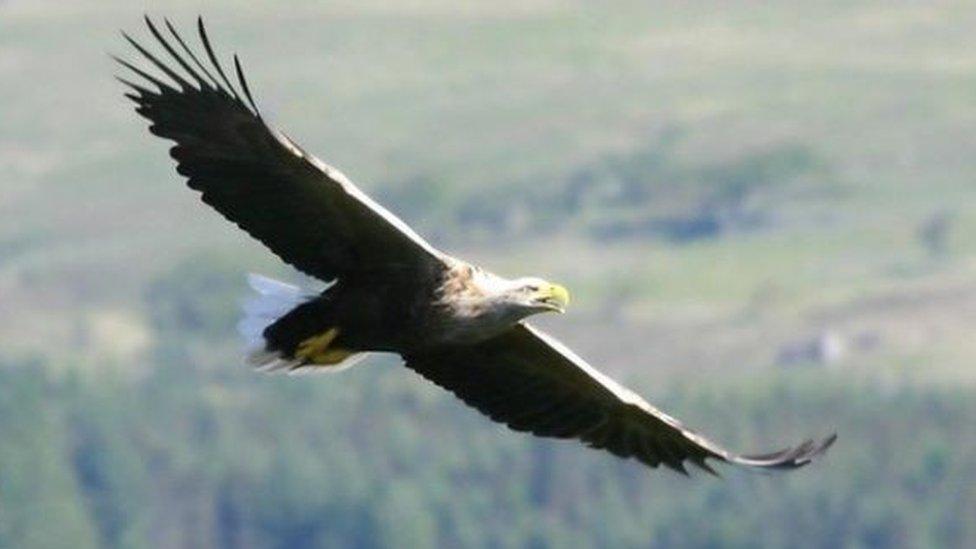Isles MP calls for cull of sea eagles to protect lambs
- Published
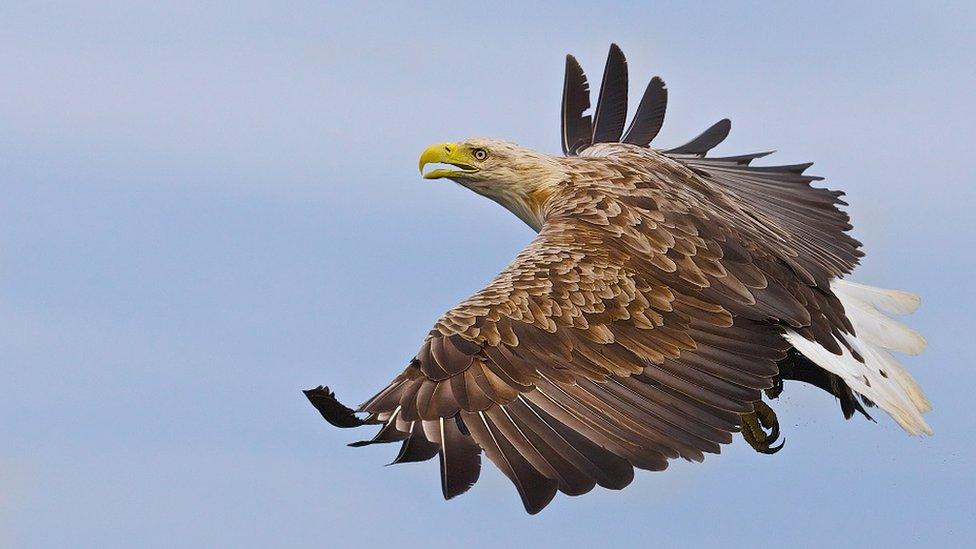
White-tailed sea eagles are the UK's largest bird of prey
An MP has called for a cull of white-tailed sea eagles in places where the birds prey on lambs.
Angus MacNeil said numbers of the eagles - the UK's largest bird of prey - were "bumping up" in certain areas due to them eating livestock.
The Western Isles SNP MP, who is a crofter with his own sheep flock, said a neighbour on Barra lost two healthy lambs in attacks on Saturday.
Conservation groups said culling sea eagles would be a "step backwards".
Warning: This story contains graphic images of dead lambs
NatureScot, the public body responsible for wildlife management, said it was not considering a cull.
White-tailed eagles were driven to extinction in Scotland by 1918.
The species was later reintroduced, with the first birds being taken from Scandinavia and released on the Isle of Rum in 1975.
Subsequent reintroductions and the birds' natural dispersal means there are now populations spread as far as Fife, Orkney and the north west Highlands.
NatureScot runs the sea eagle management scheme, which gathers evidence of eagles' effects on livestock and provides equipment to scare off the birds.
The scheme's other mitigation measures include diversionary feeding - providing meat and fish in a location away from livestock.
Allow X content?
This article contains content provided by X. We ask for your permission before anything is loaded, as they may be using cookies and other technologies. You may want to read X’s cookie policy, external and privacy policy, external before accepting. To view this content choose ‘accept and continue’.

But Mr MacNeil said crofters and farmers in parts of the Western Isles and west Highlands were losing large numbers of young lambs and tougher measures were needed in certain areas.
The MP tweeted pictures of his neighbours' attacked lambs, describing the scene as the "ugly work" of an eagle.
He said: "The eagles are now living on food that is not provided by nature, but is provided by agricultural activity within the environment, therefore, the extra food that farming and crofting is putting into the environment is bumping up the number of these predators beyond what they would have in nature."
Mr MacNeil added: "It is notable that conservationists kill deer and goats in Scotland because they feel that their numbers are not what they would be in some idealised nature because they have no apex predators.
"But, in this case, we have predators growing in numbers because they are feeding outwith nature and feeding in agriculture."
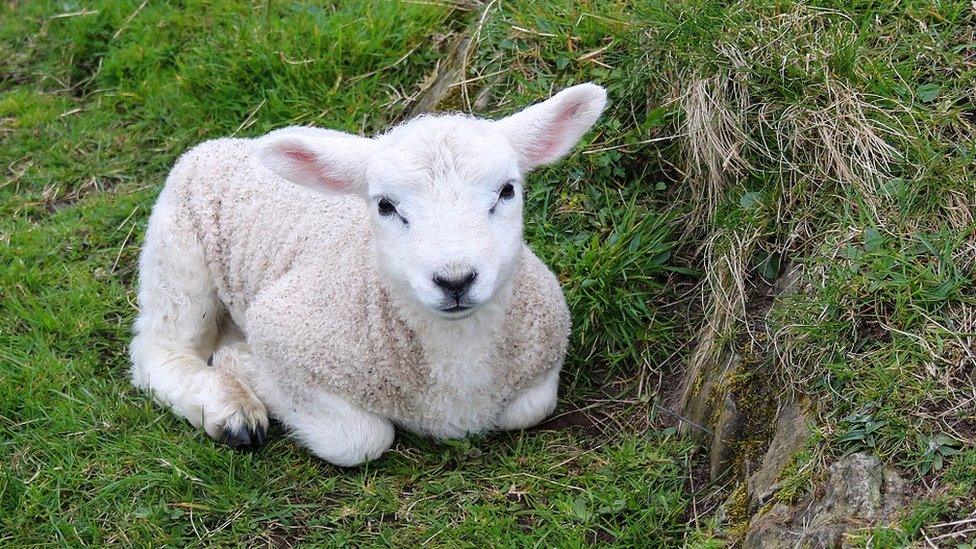
A scheme run by NatureScot gathers evidence of livestock losses to sea eagles
The Scottish Wildlife Trust said the species was still in recovery and allowing eagles to be culled would be a step backwards and could jeopardise their successful return to Scotland.
Director of conservation Sarah Robinson said: "The reintroduction of white-tailed eagles has created significant economic benefits through nature tourism.
"At the same time we accept that these birds of prey have negative impacts that need to be mitigated to help encourage people to live alongside them and accept the species as a part of Scotland's natural environment."
RSPB Scotland said it understood the concerns of crofters and farmers, adding that it was continuing to work with the agricultural industry through the sea eagle management scheme.
NFU Scotland member David Colthart, a sheep farmer in Appin and chairman of the Argyll and Lochaber Sea Eagle Stakeholder Group, said the eagles were a cause of stress for crofters and farmer as well as causing economic damage.
He said he had suffered losses of lambs on his own farm, but said actions such as diversionary feeding should be given a chance to work.
Related topics
- Published9 April 2022
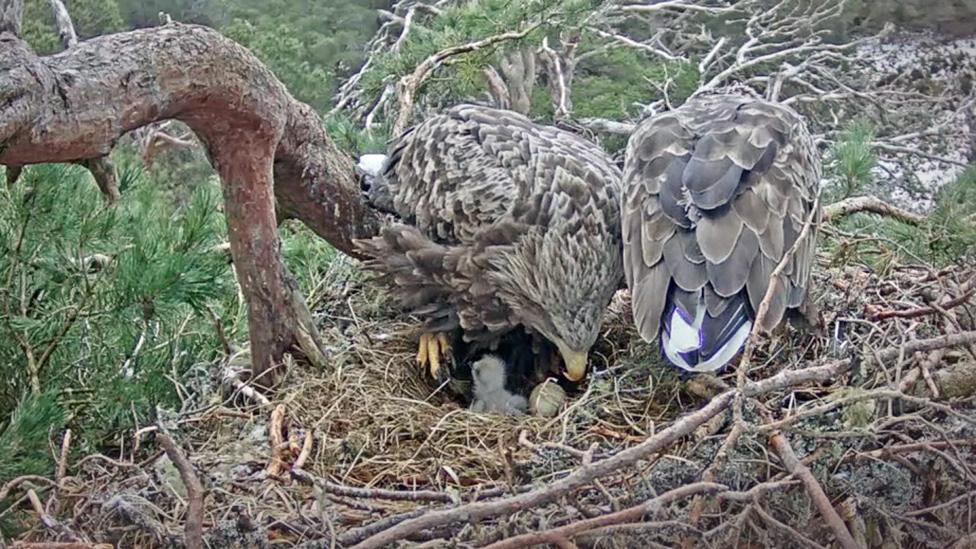
- Published11 June 2021
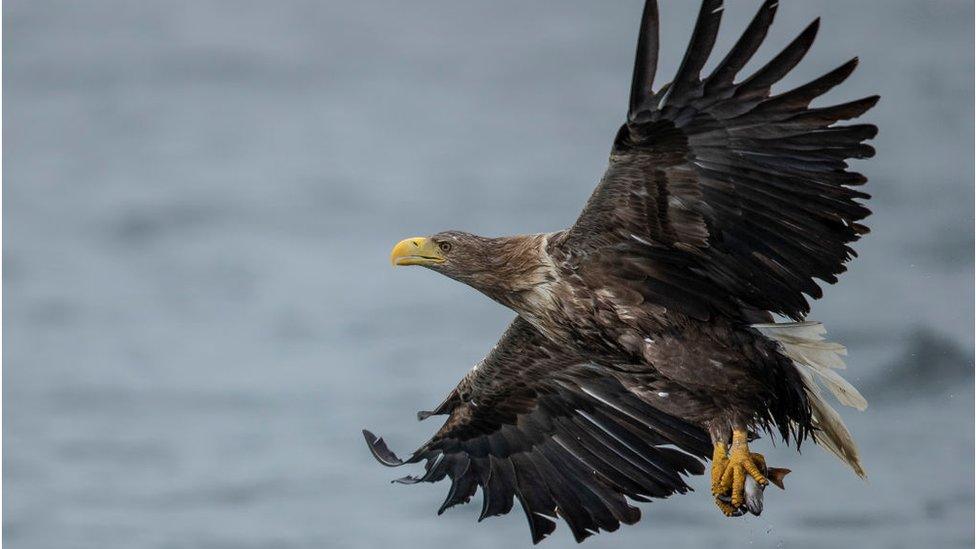
- Published24 May 2019
